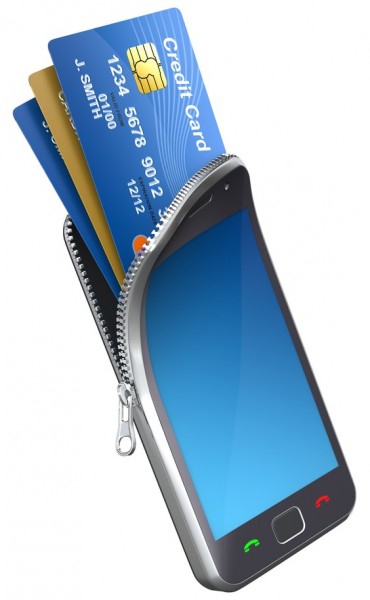Mobile payments are coming to Europe
 Credit and debit cards haven’t evolved much since their introduction. The principle behind any payment card is the same now as it was 50 years ago. You pay with a plastic card, which is the opposite of technology evolution. It’s something that’s a given in our lives: we can’t live without one. But can we?
Credit and debit cards haven’t evolved much since their introduction. The principle behind any payment card is the same now as it was 50 years ago. You pay with a plastic card, which is the opposite of technology evolution. It’s something that’s a given in our lives: we can’t live without one. But can we?
The residents of the old Continent, Europe, are still reluctant to let go of cash, as 57 percent of all purchases are still paid the old fashioned way. Credit cards can’t change that, and it looks like nothing can that’s already on the market. The solution to this problem? An entirely new technology, near field communications.
NFC a new standard that’s been introduced in smartphones. According to Google, 1 million NFC Android phones ship every week. The principle behind it is simple: touch the phones together and then exchange data. It’s that simple and a feature that’s likely to make our lives easier. NFC also has another trick up its sleeve: paying with your phone. You touch the back of the phone to a designated spot in the shop and that’s it, you’re done. Credit cards can be kept at home.
A program like Google Wallet is required to make this possible, so the interest it stirs from cell phone operators is inevitable. Europe has recently become more interested in NFC, but it’s something that I expect to take off very fast around the old Continent.
Deutsche Telekom partners with MasterCard
The credit card company MasterCard and German carrier Deutsche Telekom (Europe’s second largest carrier) announced on July 2 that they’ve partnered up. The purpose: to introduce mobile payments. Deutsche Telekom is German, so you may ask why this is relevant to Europeans.
Deutsche Telekom is the parent company of T-Mobile, which is a carrier in 11 European countries, as well as the United States, Puerto Rico and US Virgin Islands. This has even deeper implications; as T-Mobile also controls other carriers as well, operating in Southwest Europe.
Deutsche Telekom's partnership with MasterCard has an effect on tens of carriers in Europe and the benefit of NFC payments could be extended to all the subsidiary companies in its control. The coverage they have and the partnership will only bring benefits to the German carrier.
This is great news for fellow Europeans that have expected NFC to increase its popularity in Europe. Popularity is crucial for NFC adoption, as it’s up to the store owners to add mobile payment.
Deutsche Telekom wants Google as a Partner
More good news comes today from Thomas Kiessling, which is Deutsche Telekom’s head of innovation. In an interview he acknowledged that Deutsche Telekom is talking to Google, credit card companies and banks to gain partners for its new mobile payment system.
Kiessling says that he’s confident in that only a few mobile payment systems (like Google Wallet) will survive the market’s test, despite banks and software company efforts to introduce their own. Kiessling is indeed very smart, making complete sense.
People always go for the most popular and well-known products and an overly saturated market will only send the unpopular ones into anonymity. Deutsche Telekom’s desire to partner with Google is a strategic move as Google Wallet is known mobile payment software and Google’s name carries a lot of weight for anyone that has ever used a computer.
About 93 million people use Deutsche Telekom, so market share is relevant enough to justify its own mobile payment program. Fifty-seven percent payments in cash would mean, through a very rough calculus, that at least 50 million of its users are targeted by the carrier to use mobile payments. This is a big number to start with and it can only fuel the popularity of NFC in mobile phones and the mobile wallet’s popularity as well.
NFC adoption also means an increase in revenues from processing payments, which according to the same Thomas Kiessling, is bound to increase from 11 to 13 billion Euro by 2016. Only a foul would say no today to mobile payments.
Good News for Europeans, But What’s the Catch?
Like always, there is a catch with good news that comes these days. Deutsche Telekom might have made its users very happy with recent announcements, but that also involves a secondary cost.
If you want to pay with your phone, you need one that supports NFC, which means getting a fairly new model. Along with paying with your phone, you’ll most likely pay with your new phone.
Technology always comes at a cost and this is the price to pay to revolutionize the way we pay. Finally, you can leave your credit card and cash at home.
Photo Credit: Slavoljub Pantelic/Shutterstock
